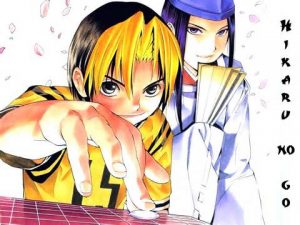Go! (DOG EAR)
Go! (DOG EAR)
 here is a power to storytelling. It makes me wonder of all the lives it might change. How many people look at a story (in books, in movies, around a campfire) and can trace a lifechange back to that? Perhaps there are people who found happiness and grace from modeling themselves after positive role models out of the endless worlds of human imagination. Of course, granted, there are also those who hold guns like gangstas, who smoke, and who ruin their lives because of simplistic images presented to them. Who knows – perhaps somewhere in the 1844 a promising doctor put down his surgeon’s tools and took to the Paris streets in the uprising of 1848, simply because of the colorful tales of Porthos, Athos and Aramis.
here is a power to storytelling. It makes me wonder of all the lives it might change. How many people look at a story (in books, in movies, around a campfire) and can trace a lifechange back to that? Perhaps there are people who found happiness and grace from modeling themselves after positive role models out of the endless worlds of human imagination. Of course, granted, there are also those who hold guns like gangstas, who smoke, and who ruin their lives because of simplistic images presented to them. Who knows – perhaps somewhere in the 1844 a promising doctor put down his surgeon’s tools and took to the Paris streets in the uprising of 1848, simply because of the colorful tales of Porthos, Athos and Aramis.
For me, it seems to the be ancient Oriental game of Go.
Go is a neat little game played with beads of black and white on a wooden grid. Players attempt to capture territory and restrict, deny, and capture their opponents.
So how does a late-middle-aged writer get involved in such a thing (and, indeed, such a thing that my two live games have shown I have no knack for)? Well, apparently because of a Japanese animated series, Hikaru no go.

In this very long yet very entertaining serial, a sixth grader with unlikely hair (blonde wings and black back) attempts to steal his grandfather’s Go board (both to pawn and to impress his girlfriend). However, in doing this, he releases the spirit of Fujiwara-no-Sai, a go instructor from Heian Era. Through Sai, Hikaru learns to play go. His unguided energies are soon channeled into the world of Go, with its schools and tournaments and professional statuses. Think of an intellectual NFL.
In watching the series you get a good understanding of the basics of Go (basics that failed to keep my firm line of defenders from crumbling before my opponent’s merciless encirclements. The game is deeper than I thought). But there is excitement to the series, in watching Hikaru play wildly, of Sai being alternately nurturing and crybabyish (traits actually common with nobles from that era). I especially enjoyed how Sai (who committed suicide when wrongly convicted of cheating) actually defends a child cheater in a Go salon (because, if he hates cheating, he despises bullying) and by directing Hikuro’s piece placement proceeds to vivisect a professional Go gambler (even I, with my limited skills, could see some of what he did).
But that’s one of the important tasks of any writer (or storyteller), to take something as simple of musketeers or a junior Go player and make it so interesting that the audience is hooked. And I gotta say that I have a growing interest in this game – so watch for my review of the Go book I recently purchased on this site. Yeah, here we go – another hobby. Just what I needed.
